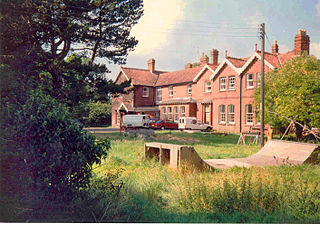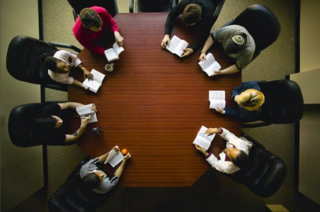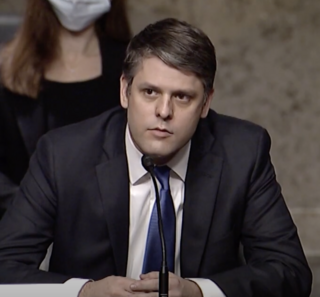
The Sudbury Valley School was founded in 1968 by a community of people in Framingham, Massachusetts, United States. In 2019, several schools stated that they were based on the Sudbury Model in the United States, Australia, Belgium, Canada, France, Germany, Israel, Japan and Switzerland.

Summerhill School is an independent day and boarding school in Leiston, Suffolk, England. It was founded in 1921 by Alexander Sutherland Neill with the belief that the school should be made to fit the child, rather than the other way around. It is run as a democratic community and is considered a Democratic School; the running of the school is conducted in the school meetings, which anyone, staff or pupil, may attend, and at which everyone has an equal vote. These meetings serve as both a legislative and judicial body. Members of the community are free to do as they please, so long as their actions do not cause any harm to others, according to Neill's principle "Freedom, not Licence." This extends to the freedom for pupils to choose which lessons, if any, they attend. It is an example of both democratic education and alternative education.

The New Hampshire Supreme Court is the supreme court of the U.S. state of New Hampshire and sole appellate court of the state. The Supreme Court is seated in the state capital, Concord. The Court is composed of a Chief Justice and four Associate Justices appointed by the Governor and Executive Council to serve during "good behavior" until retirement or the age of seventy. The senior member of the Court is able to specially assign lower-court judges, as well as retired justices, to fill vacancies on the Court.
Educational assessment or educational evaluation is the systematic process of documenting and using empirical data on the knowledge, skill, attitudes, aptitude and beliefs to refine programs and improve student learning. Assessment data can be obtained by examining student work directly to assess the achievement of learning outcomes or it is based on data from which one can make inferences about learning. Assessment is often used interchangeably with test but is not limited to tests. Assessment can focus on the individual learner, the learning community, a course, an academic program, the institution, or the educational system as a whole. The word "assessment" came into use in an educational context after the Second World War.

John F. Tierney is an American politician who served as a U.S. Representative from Massachusetts from 1997 to 2015. He is a Democrat who represented the state's 6th district, which includes the state's North Shore and Cape Ann.
A Sudbury school is a type of school, usually for the K-12 age range, where students have complete responsibility for their own education, and the school is run by a direct democracy in which students and staff are equal citizens. Students use their time however they wish, and learn as a by-product of ordinary experience rather than through coursework. There is no predetermined educational syllabus, prescriptive curriculum or standardized instruction. This is a form of democratic education. Daniel Greenberg, one of the founders of the original Sudbury Model school, writes that the two things that distinguish a Sudbury Model school are that everyone is treated equally and that there is no authority other than that granted by the consent of the governed.
In England, Wales and Northern Ireland, school governors are the overseers of a school. In state schools, they have three main functions:

Democratic education is a type of formal education that is organized democratically, so that students can manage their own learning and participate in the governance of their educational environment. Democratic education is often specifically emancipatory, with the students' voices being equal to the teachers'.

The Circle School is a self-directed democratic school located in Harrisburg, Pennsylvania, founded in 1984. It is operated similarly to the Sudbury Valley School and Hudson Valley Sudbury School. It enrolls pre-kindergarten through high school aged children. The Circle School currently has approximately 80 students enrolled and 6 full-time staff members. It is one of three Sudbury-like schools in Pennsylvania and one of the oldest in the world.

The Peel District School Board is a school district that serves approximately 153,000 kindergarten to grade 12 students at more than 259 schools in the Region of Peel in Ontario, also to the west of Toronto.
Youth suffrage is the right to vote for young people. It forms part of the broader universal suffrage and youth rights movements. Most democracies have lowered the voting age to between 16 and 18, while some advocates for children's suffrage hope to remove age restrictions entirely.

A democratic school refers to an alternative school that meets the following criteria:
The Philadelphia Free School also known as Philly Free School or PFS, is a Democratic Free School in Philadelphia, Pennsylvania. Philly Free School operates on the democratic education or Sudbury school model. The school opened in the fall of 2011 and offers a sliding scale tuition to students ages 4 to 19.
Upattinas School and Resource Center was a private, non-profit school that served students in kindergarten through twelfth grade, as well as a homeschool resource center. Located in Glenmoore, Pennsylvania, Upattinas was a democratic school where everyone—staff, students, parents, and board—had the opportunity to participate in school governance.
Three Rivers Village School is the first democratic school in Pittsburgh, PA. It operates on the Sudbury school model of democratic education. Three Rivers Village School opened in the Fall of 2013 and accepts students from Kindergarten through twelfth grade. It is a tuition-based private school that offers a sliding scale tuition rate. As of Fall 2014, it enrolls around 25 students.
Houston Sudbury School (HSS) was a non-profit private Sudbury school in Spring Branch, Houston, Texas. The school served students of ages 6–18 and followed the Sudbury model of self-education.
The Clearwater School is an independent school in Bothell, Washington, a northern suburb of Seattle, Washington, United States. Clearwater is a Sudbury school that serves students from ages 4 to 19.

Justin Reed Walker is an American lawyer and jurist serving since 2020 as a U.S. circuit judge of the U.S. Court of Appeals for the District of Columbia Circuit. He previously was a U.S. district judge of the U.S. District Court for the Western District of Kentucky from 2019 to 2020.











